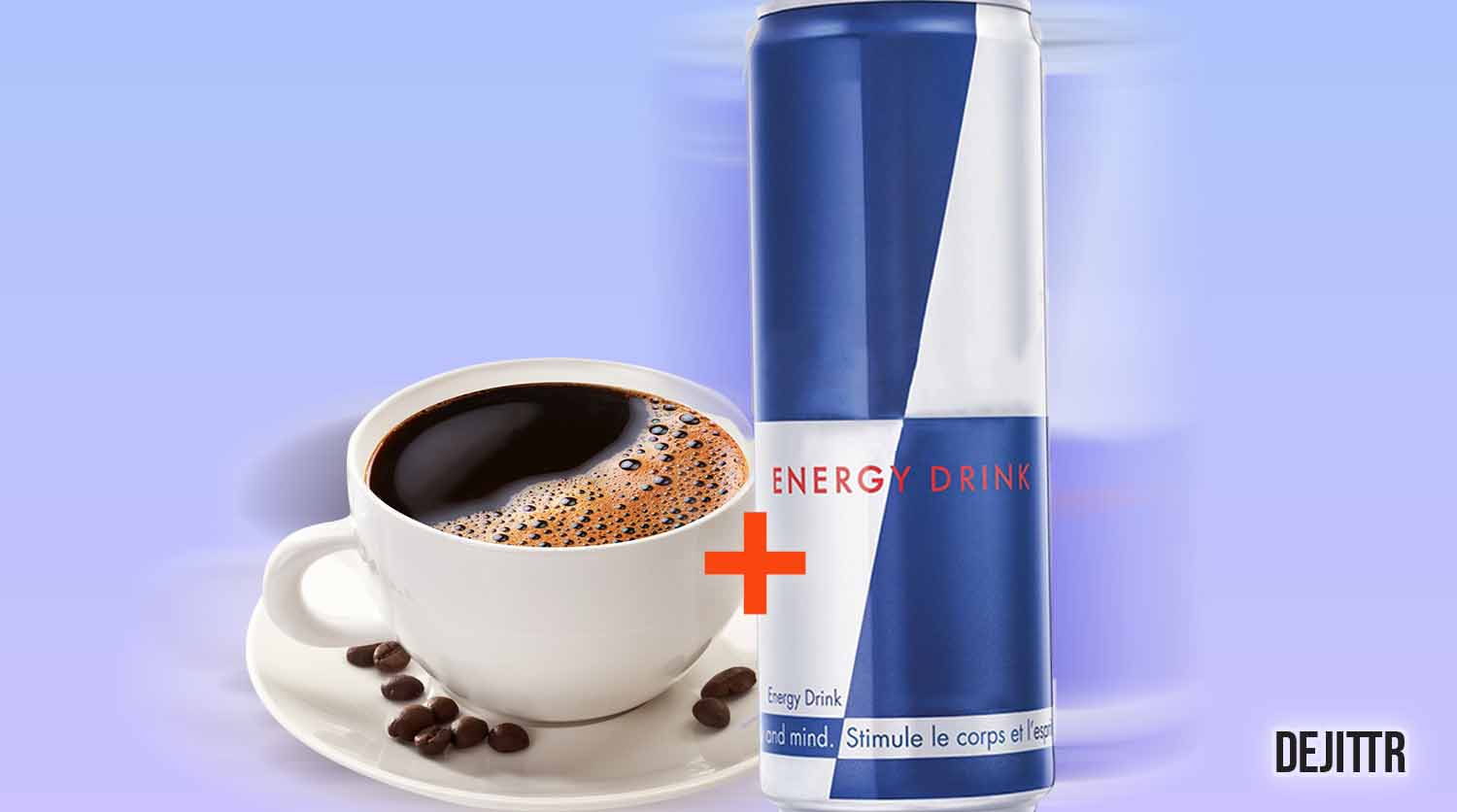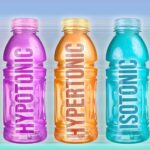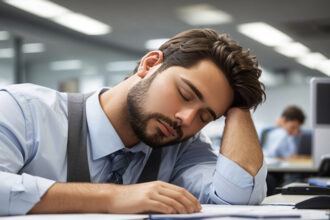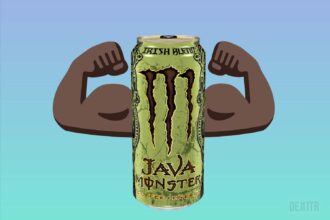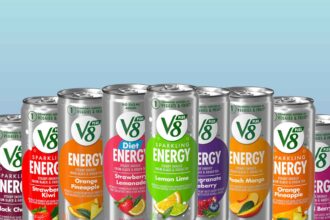Whether you want to stay caffeinated or for fun, drinking coffee and energy drink at the same time may sound attractive. But is drinking this combo together a bad idea? Let’s find out!
Key Takeaways:
In short, a regular cup of coffee and average energy drink caffeine amounts falls below the FDA’s recommended daily consumption. However, avoid overconsuming them together regularly because excessive caffeine consumption per day may lead to caffeine dependency.
Keep reading to learn more about the effects of drinking energy drinks and caffeine together and more interesting facts.
Can You Drink Red Bull And Coffee Together?
When it comes to energy drinks, Red Bull is one of the popular options that come to mind. So can we drink red bull and coffee together? First, let’s do the math:
One (8-ounce) can of Red Bull has about 80 mg of caffeine.
Now the caffeine content of a cup of coffee can vary a lot based on the serving size and the type. Follow this chart for reference:
| Coffee Cup Type | Caffeine |
| 1 cup brewed coffee (8 oz.) | 70-150 mg |
| 1 cup of Instant coffee | 30-90 mg |
| 1 shot of espresso (30-50 ml) | 63 mg |
An average cup of coffee has around 93 mg.
Now let’s say you took one average cup of coffee and one can of red bull energy drink. So the final caffeine levels you took will be:
80 mg + 93 mg = 173 mg total caffeine
However, as per FDA, the upper limit of caffeine per day for most healthy adults is 400 mg. And the caffeine level up to this level is not linked with any serious impact.
Hence, you won’t have any issues if you drink red bull and one cup of coffee simultaneously (because you don’t exceed caffeine’s daily limit).
But does that mean you can regularly drink the combo as you wish? In all likelihood, the answer is not.
Moreover, if you mix a milk-based coffee with an energy drink, expect an odd taste. Energy drinks are acidic, so they can cause the milk in the coffee to curdle up. So you may not enjoy the taste!
Check out this guide, where we share more insights about mixing milk with energy drinks.
How Does The Body Metabolize Coffee?
Caffeine reaches its maximum blood concentration from 15 minutes to 2 hours after ingestion.
Drinks containing caffeine, such as coffee and tea, are absorbed rapidly in the digestive tract and are soluble in both water and fat molecules in the body. It can enter the central nervous system.
Recommended Resource:
One of the goals of our website is to demystify ingredients such as caffeine. We create fun-to-read, in-depth, and medically-backed topics that our users love. Here’s another super helpful resource when you’re done reading this article.
The speed with which caffeine reaches its peak blood concentration can be slowed by the presence of food or dietary components in the digestive tract, such as fibers.
Therefore, consuming your morning coffee on an empty stomach may provide a more rapid energy boost than consuming it with breakfast.
The liver is responsible for the primary metabolism of caffeine. Depending on several variables, its half-life in the blood might be anywhere from 1.5 hours to 9.5 hours.
How Does The Body Metabolize Energy Drink?
Within 10 minutes of drinking an energy drink, caffeine enters the system, increasing the heart rate and blood pressure. Blood caffeine levels will peak between 15 and 45 minutes after consumption.
A person’s sense of alertness and capacity for focused thought will rise as a result. Within 30 to 50 minutes after drinking an energy drink, all of the caffeine will have been absorbed.
The caffeine’s effects will wear off within an hour, and a sugar crash might follow. Eventually, you’ll feel exhausted, and your energy levels will drop. Refer to this guide to learn more about crashes due to energy drinks.
The half-life of caffeine is around 5-6 hours, which is the length of time it takes for the body to reduce the quantity of caffeine in the bloodstream by half. And fully eliminating caffeine from the system takes an average of 12 hours.
Can You Drink Coffee Before Or After Energy Drink?
The short answer is yes; if you space out the timing, you don’t have to worry about the caffeine dosage.
On average, it takes around 12 hours for the complete caffeine removal from the body.
So if you consume energy drinks before or after 12 hours of drinking a cup of coffee, there won’t be any major impact. And vice versa is also true.
The key is to space out the timing and thus allow the body to metabolize the caffeine completely, so there isn’t any overdose chance. But if you drink both beverages simultaneously, there will be a risk of caffeine spikes in the body.
Why You Shouldn’t Drink Coffee And Energy Drink At The Same Time Regularly:
Risk Of Caffeine Overdose
In the red bull and coffee math example, we were still below the upper limit of caffeine consumption in a day.
But here’s the thing:
Caffeine sensitivity can differ from person to person. As a result, caffeine’s effects may be felt more strongly by certain individuals than by others.
Caffeine sensitivity can be increased by several factors, including health issues and medicines. And caffeine’s effects may last longer in those whose metabolisms are slower in processing it.
So, due to this variability in caffeine sensitivity, there remains a chance of overdosing, especially when you consume two caffeinated beverages simultaneously. And the consequences of taking too much caffeine are not that great.
Caffeine doses of up to 400 milligrams per day are generally safe for most healthy adults. However, excessive caffeine intake may lead to negative health effects like unease and trembling, insomnia, dizziness, headaches, a racing heart, dehydration, anxiety, and dependence.
Caffeine Dependency
Now when we talk about consuming two caffeinated beverages simultaneously, the chances of caffeine dependence can’t be ignored.
As you consume more and more caffeinated beverages, your body will get tolerant to caffeine and require higher doses to have the same effect (tolerance). As the levels of caffeine increase, so does the likelihood of experiencing negative impacts from it.
Caffeine dependency is different from addiction. A substance is classified as addictive if it causes a response in the brain’s reward system. Like other addictive drugs, caffeine increases dopamine transmission in the brain, but not to the extent that it activates the brain’s reward circuit.
Caffeine’s ability to antagonize the adenosine A2A receptor and therefore prevent adenosine from binding to the adenosine receptor site contributes to the development of caffeine dependency. This prevents sleepiness and causes a surge of dopamine.
Caffeine is a stimulant for the central nervous system, and if you drink it every day, your body gets a little used to it. However, unlike addictive narcotics, coffee doesn’t pose the same risks to your physical, social, or financial well-being.
If you drink two or more cups of coffee daily and suddenly stop consuming caffeine – you may have withdrawal symptoms for a day or longer.
Caffeine withdrawal can cause many uncomfortable symptoms, including mental and physical distress. In addition, caffeine withdrawal may lead to a sour mood and a few rough days.
And any type of dependency is still an issue because it prevents you from having a normal life. So it’s better to reduce the chances of caffeine dependency by not drinking energy drinks and coffee together.


